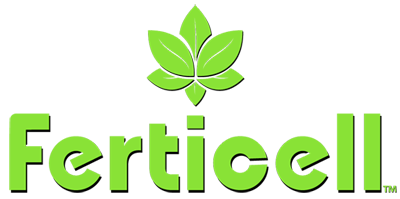Progress may take many shapes and steps toward the greater good, but at times, take steps back. Over the last 50 years, one third of our topsoil has been lost. As growers adjust and look to find more sustainable agricultural products and practices to improve on, already astounding yield efficiency, they will need to understand the topic that seems to be a trend in sustainability; biostimulants.
Biostimulants are either natural or synthetic substances that the grower can apply to influence plant growth. It should be noted that the largest, most abundant supply of biostimulants on the planet is dihydrogen monoxide, otherwise known as water!
Understanding the need for a biostimulant can come down to a variety of factors, but in this blog, we are only going to focus on the need in relation to abiotic stress. Abiotic stress in plants is a growing concern for the modern farmer. Avoiding drought, water, or temperature stress and salinity issues are compounded by lower water allocations, rising temperatures, and weather patterns developing less predicably than in the past.
To give the sustainable and organic growers in the US an opportunity to combat these plant stresses, Ferticell carries a range of products ideal for a reduction in plant stress. Our biostimulant products from Ferticell are all plant or mineral based, with zero animal byproducts in their formulation.
If Ferticell products are applied at the right time, they provide the biostimulants that are essential to stimulate physiological processes, which may be stunted during abiotic stress. Several molecular, cellular, and physiological changes necessary for plants to respond and adapt to such conditions are shut down when environmental conditions reduce ideal levels for plant yield and growth. Some of these include salt, temperature, and/or drought.
Research has shown that using plant-based amino acid fertilizers like Nutri-Plus™, which contains 19 of the most essential amino acids for plants in a concentrated form, increases nutrient efficiency and accelerates plant growth. There are many reasons for this, including the chelation effect that L-amino acids naturally have on macronutrients and micronutrients within the rhizome.
Our knowledge of amino acid metabolism has increased exponentially in the past three decades. Amino acids and their derivatives have various prominent functions in plants, such as protein synthesis, growth and development, nutrition, and stress responses (Hildebrandt et al., 2015).
Just a few L-Amino Acids in Nutri-Plus™
- L-glutamic acid – an important amino acid that acts as a central molecule in the metabolism of higher plants, being the precursor of the synthesis of chlorophyll in leaves and the carbon regulatory function and nitrogen metabolism.
- L-Tyrosine – the central hub to a myriad of specialized metabolic pathways such as protein synthesis and protection from biotic and abiotic stresses
- L-Tryptophan – essential in synthesizing many bioactive molecules such as auxins, tryptamine derivatives, phytoalexins, indole glucosinolates, and terpenoid indole
alkaloids. It is crucial in the regulation of plant growth and development and stress responses. - L-Arginine – synthesizes polyamines and involved in response to plant stress. Plays a key role in nitrogen storage and mobilization during germination.
Universal™ is a proprietary freshwater algae extract designed in a high concentration to deliver enhanced growth and stress tolerance against many environmental stresses. The algae extract in Universal™ will help facilitate the uptake of nutrients. This causes higher relative water content in leaves and lowers the difference in leaf and air temperature during water deficit, soil salinization, and exposure to sub-optimal growth temperatures.
Saline, or salty conditions, can be improved or managed by considering a biostimulant application at key intervals throughout the crop cycle. Preparing for these conditions can be beneficial when priming soils for different abiotic stress in plants.
An increase in proline is also induced by glutamate from the saccharopine pathway and in response to osmotic and salt stress (Batista-Silva et al., 2019).
According to many studies and Ferticell trial data, plant-based biostimulant applications provide a sustainable method of enhancing crop quality and yield while dealing with abiotic stress. In addition to increasing seed yield and quality, plant biostimulants enhance plant growth and resistance to abiotic stresses.
The Ferticell™ mission statement is to continually advance and provide sustainable agricultural products while protecting and restoring the soil environment. Ferticell refuses to compromise on quality, consistency, or ethics. Our products have demonstrated that plant-based biostimulants have protective effects against abiotic stress in plants.
